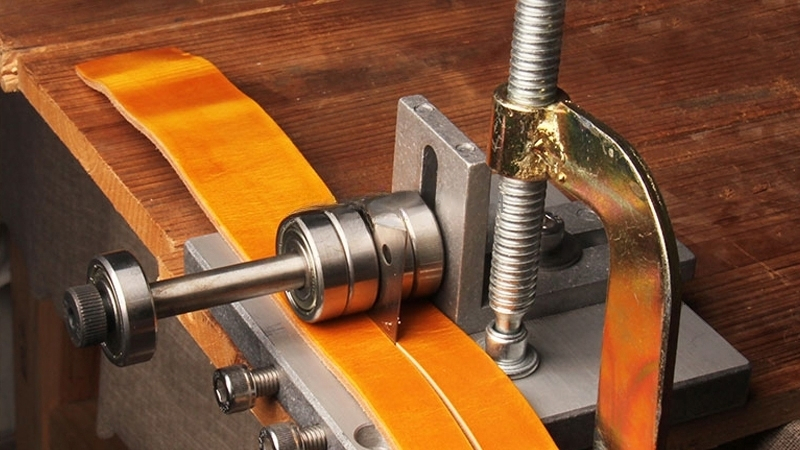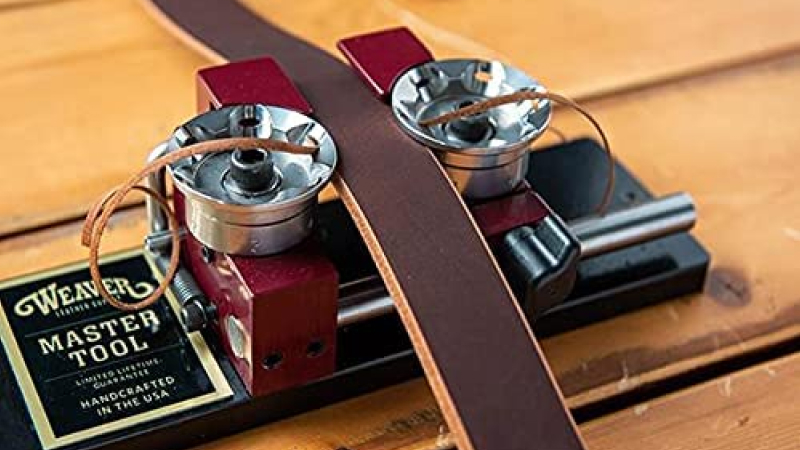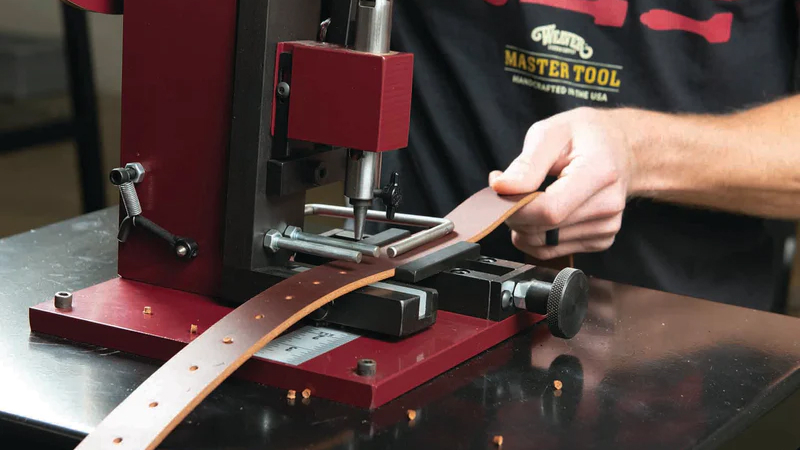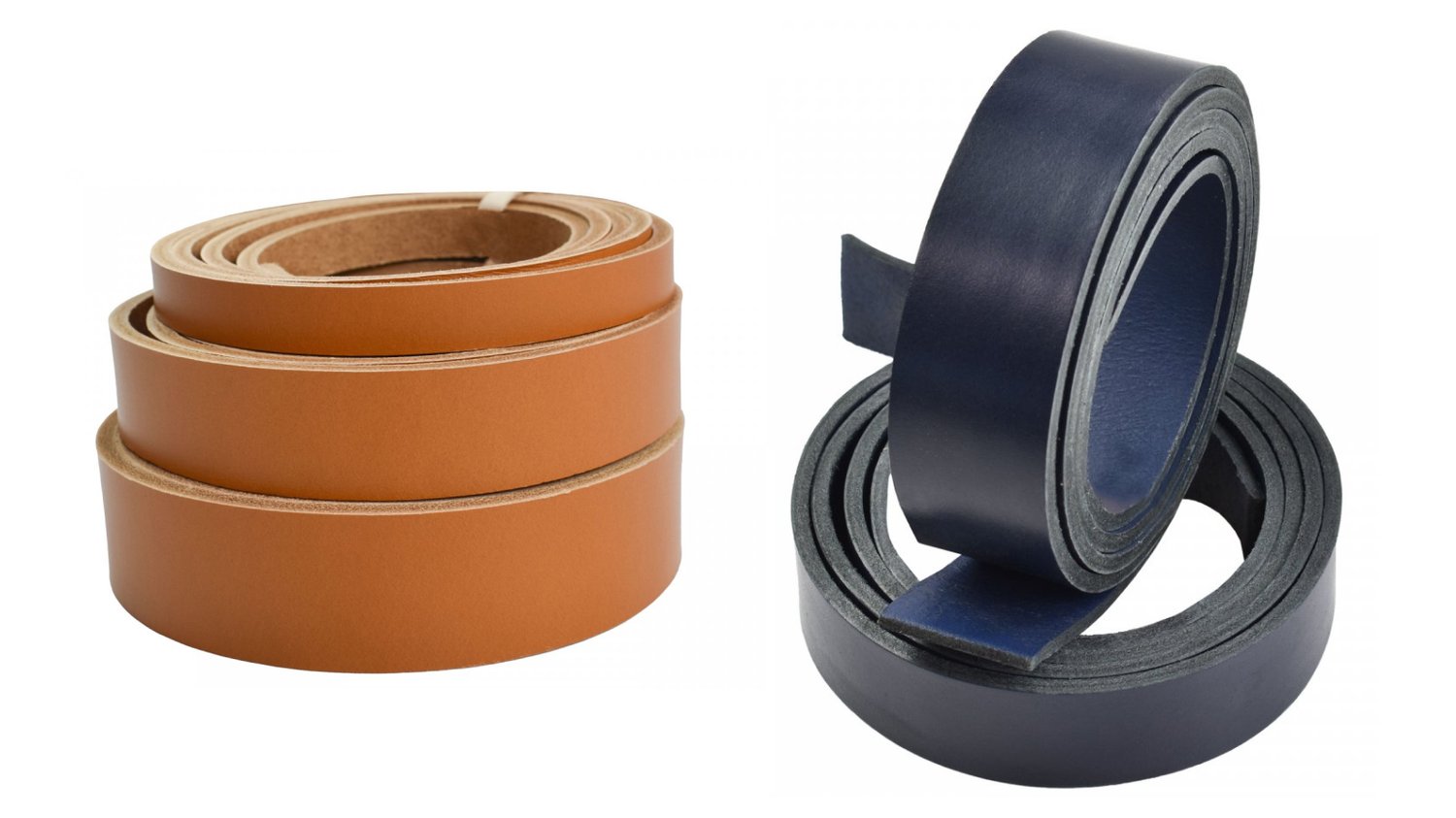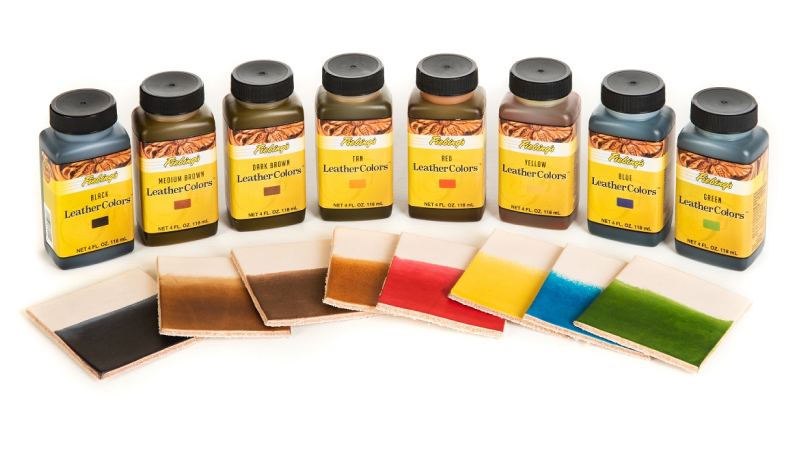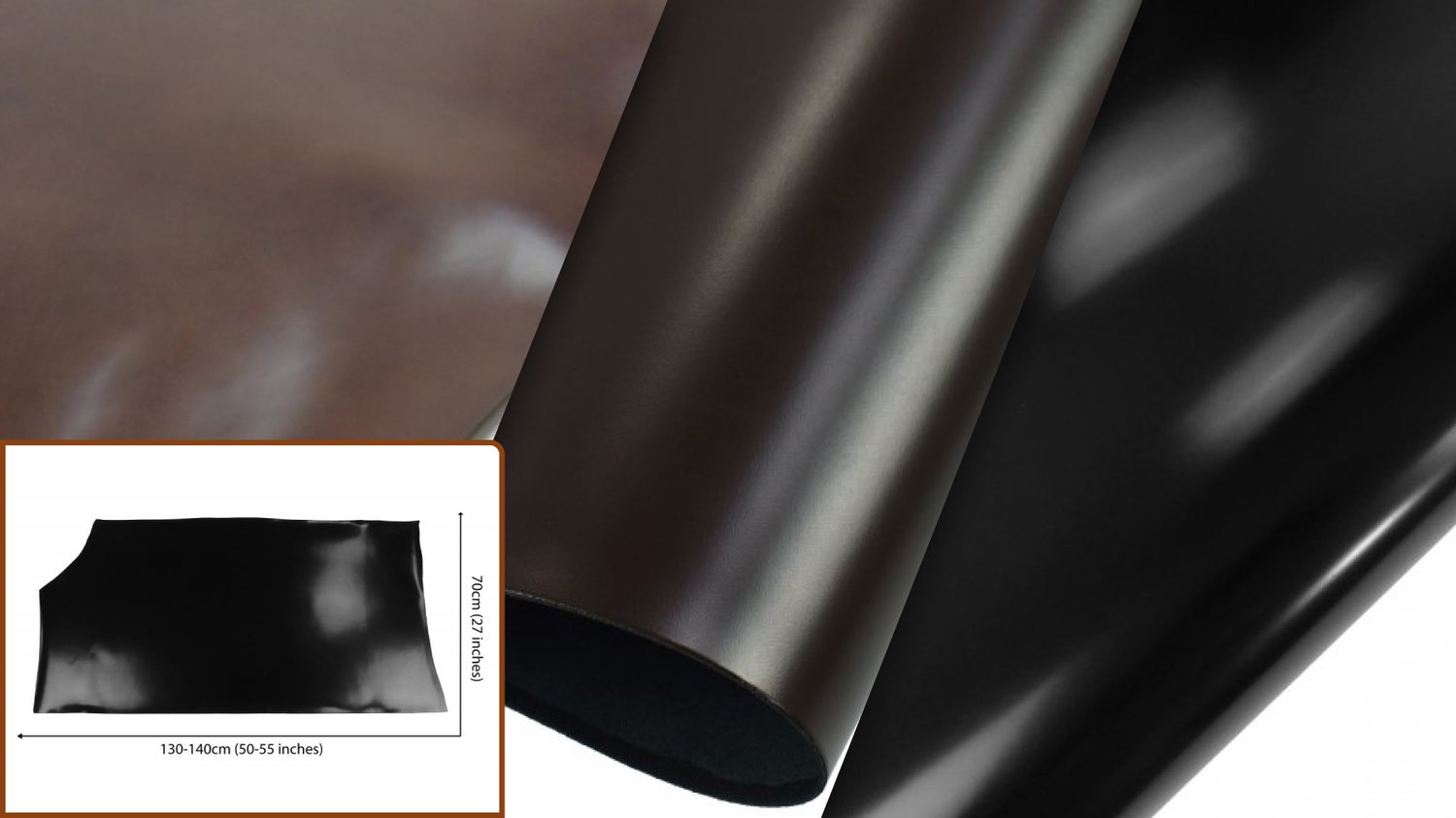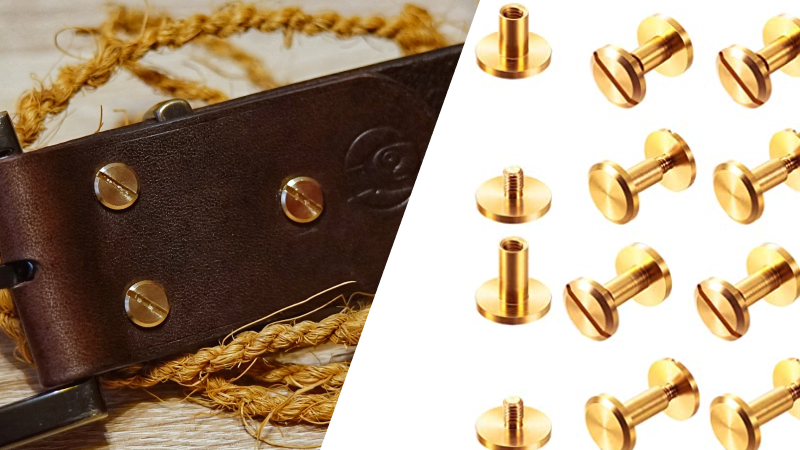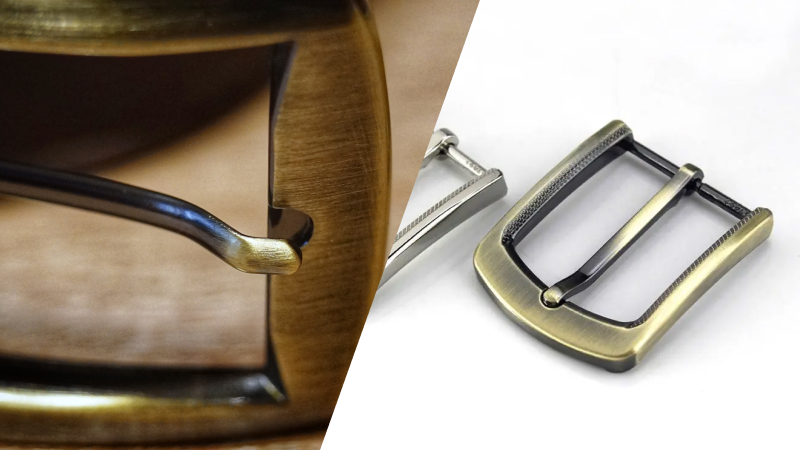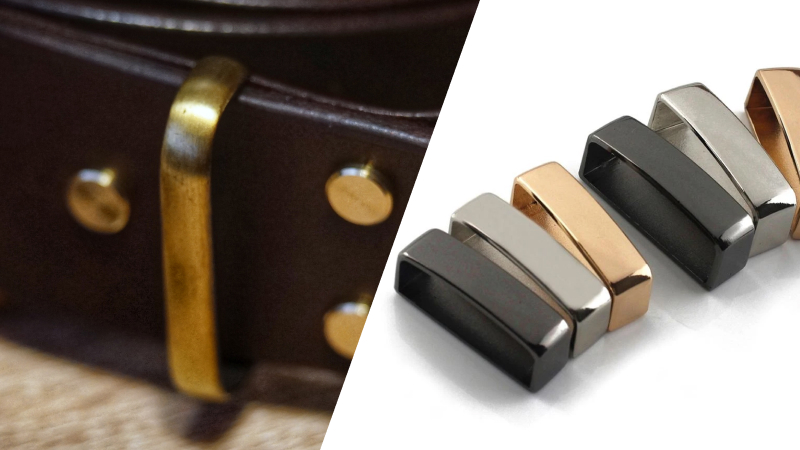Beginner's guide for crafting leather belts
I'm often asked what's needed to start making belts when I have no idea where to start. Let's dive into the range of tools and leathers you would need, as well as hardware.

I'm often asked what's needed to start making belts when I have no idea where to start. Let's dive into the range of tools and leathers you would need, as well as hardware.
As a pragmatic crafter, I know you wouldn't spend tones of money before realizing that crafting belts isn't for you.
That's why I propose to you several lists of tools based on what you would like to realize.
Some of the links below are affiliate links, but there is no tools I've listed that I haven't personally tested.
Don't be fooled by your biases, some links I share are on AliExpress, but they are the same tools sold in craft shops.
I can attest of their solidity and I have selected them after multiple failures with other tools.

My suppliers offer some advantages if you want to order. They are professionals I trust from the beginning of my activity.
Before I start listing tools, I think it's important to see a bit of my process to better understand why and how I use some specific tools.
In the lists below, I have all the basic tools and some of the more advanced ones.
Follow my channel for more making-of videos.
This perforator comes with multiple shapes of holes to make the buckle hole, but also the ardillon holes in the belt.
If you prefer hole punches, take a look at the other tools just after this one.
This hole punch set gives you a little bit more freedom in where to place your holes, whereas the previous hand perforator will allow you a certain distance from the edge.
But for belts, both are valid. I use the 4.5mm a lot.
The oval-shaped is made for creating the hole that will be used by the ardillon, this metal part of the buckle that blocks the belt.
There is no one-size fits all, but a 4x8mm size seems to be a good start.
You'll need these if you punch, or cut. So, typically, you'll need these, period. Indeed, you don't want to break your tools or blades. Punch on the pad, cut on the mat. I recommend A3 size if you have enough room for this.
You'll need to cut the straps, or maybe shape the end by hand. After 2 years of practice, I finally found a good knife that meets my need for sharpness, precision, and solidity. Blades are trimmable and replaceable.
This tool is indispensable if you want smooth and clean edges on your leather creations. I recommend the size 0.7mm and 1.3mm thickness. But start with the first one if you are on a budget. Helps make the edges durable.
Don't buy all the grit-level. I recommend at least a 300, a 900, and 2000. You need those to harden your edges. Follow this small tutorial for more info.
If you plan to cut your leather straps yourself by cutting through a big hide, you would probably need this strap cutter from Wuta.
It comes with replaceable blades and a simple guiding ruler.
If you prefer wooden tools, you can always go for this hand cutter which is the exact same tool as the previous one. Not necessarily less expensive though.
Comes with several blades too.
It's the same kind of tool as the previous ones, but instead of pulling the tool, this time the tool is fixed and you handle the leather or strap. Might be difficult to handle with large pieces of leather though.
Like the V-shaped punch, you can do without it and center the holes one by one. But to me, it was a game changer even for the 12-ish belts I've made. Usefull for other kinds of leathergood.
Personally, most of my time making a belt goes to sanding and burnishing, because a belt has really long edges. This machine is a good investment and a time saver.
When you want to get thinner belts, or to start layering different leathers, you might need this tool to get a clean split.
I use one to get a thinner back when I fold the buckle end.
Cut the tip of your belt with a V-shaped punch. It's not that expensive, and you get a clean end with them, you can save a lot of time with these. The handle is a good addition.
Well, I think you got it: this one is U-shaped, same use as the V-Shaped Punch. I personally use both: the back with a U and the end with a V. Comes with a handle too.
This set is more affordable is your are on a budget, and gathers 6 sizes of 3 different shapes for your belts and straps. It doesn't have a handle, but I use those since the beginning.
Weaver is well known in the industry for machines that help you accelerate your process.
This is to bevel your edges, both at the same time. Put the belt in it, pull, you are done. Next.
Note: I haven't tested it myself.
The rotary punch machine is like a sewing machine: it moves your belt and does the hole at a regular pace and spacing.
With the centering mechanism included, it's a time saver.
Note: I haven't tested it myself.
This is an overkill machine for me, but know that it exists: you place the end of your belt in it, it centers the belt in the machine, cut the end of it and make the 5 required holes.
Finished. Overkill, but if you make those for a living, I can understand the need.
Note: I haven't tested it myself.
If you start making your own belt, you'll need some good leather to make them consistent.
Same as the tools listing, I propose here a shorter list to recommend suppliers and types of leather you might want to use.
You want your belt to last, not stretch, but you also want it to be respectful of your body.
I usually recommend leather that is between 3mm to 4mm thick and has a temper between medium and firm.
For instance, if you want a belt to be duotone, use 2 different pieces of leather of 1.5 to 2mm thickness. Here is a mm to oz to inch converter.
Vegetable-tanned bull butts. Premium quality leather made in Italy. The average length of 4mm thickness straps is between 130cm (52"in) and 145cm (57"in). Various widths available. Thickness between 2 or 4mm (5 or 10oz.)
Buyleatheronline is a partner, go get your 7% OFF with the coupon LORD7
Vegetable-tanned cow neck leather. These straps have wonderful colors and slight wrinkles. They come in various lengths and widths so you can customize your belt the way you like.
I link to you the natural, green, red (Bordeaux), blue, cognac, chocolate, brown, and black. But there are other colors you can find under "lanière cuir de collet" in the search.
This strap is a vegetable tanned bull leather. A premium quality made in Italy, with a length from 130cm (52"in) to 145cm (57"in), a width of 3,5cm (1,4"in) and thickness of 3,8mm (9,5 oz.)
It comes with 5 holes and blunt end. Can be dyed or engraved.
Buyleatheronline is a partner, go get your 7% OFF with the coupon LORD7
Vegetable tanned bull butts. Premium quality leather made in Italy. Average length of 4mm thickness strips is between 130cm (52"in) and 145cm (57"in). Various widths available. Thickness between 2 or 4mm (5 or 10oz.)
This one doesn't come with holes and shaped-end. Can be dyed or engraved.
Buyleatheronline is a partner, go get your 7% OFF with the coupon LORD7
When you want natural leather so you can dye the leather yourself, you'll need tools to apply the coloration. These are pretty good to apply small amount of dye.
You can also use more classical sponges. Find a big quantity here.
Fiebing's Leather Dye is the most recognized penetrating, alcohol-based leather dye in the world.
For use on vegetable-tanned or unfinished leather.
Dries uniformly and mixes easily to create interesting middle tones.
Vegetable Tanned Bull Double Butts (bends). This hide comes as a B or C grade, but has a very high quality/price ratio. You can choose to keep it that way or dye it the color you need.
Buyleatheronline is a partner, go get your 7% OFF with the coupon LORD7
European bull leather, natural square shoulder. This hide comes as 1st grade, and has a very high quality/price ratio. You can choose to keep it that way or dye it the color you need.
Buyleatheronline is a partner, go get your 7% OFF with the coupon LORD7
Luxury brush-off aniline effect single butts belt-size leather. This leather is used by Italian Fashion Brands, and its shape is optimized for belts. Comes in 3 different colours.
Buyleatheronline is a partner, go get your 7% OFF with the coupon LORD7
You might have a lot of questions about buckle types, screws, or rivets you may need to craft leather belts. Let me try to answer this.
I love them because it's easy to install and they are almost unbreakable. It also gives this a strong and accurate professional look.
Most of the stock comes from China, so if you plan to get a good quantity of them try this store, or this one.
This is a classical "Ardillon" type that you can find pretty much commonly among 2 other types I'll share with you.
There are lots of shops that sell these, but I tried the ones from this store and this store, and they were fine. Pretty good even.
The long D-ring-shaped buckle is made to keep the tip of your belt along the belt so it doesn't create a bump on the front.
You can find several colors here and thin and several sizes here.
No, absolutely not. If you want to try making belt, I recommend you focus on the first list, and only this one. This will allow you to get good tools for their price.
Later, if you want to make more belts or get better tools, you can come back here and test the other lists' tools. They are usually a bit more expensive, but they will help you be more accurate and fast.
I don't recommend these tools. I've made the mistake of taking one on Amazon, and today I use 2 of them in a set of 25 crappy tools.
I recommend you follow the first list on this page for making belts, there are some common tools that you can use for making other kinds of goods.
Yes I have one but the paint is not dry yet. If you want to acquire it for free and test it, contact me.
I love to help and read your questions. It'll help me improve this guide.
So yeah, please, contact me on Instagram or using the contact form.
If you have any questions on these list, or if you found a broken link, please reach out so I can help you and improve this page.
You can also find me on Instagram.









